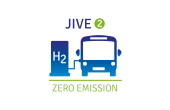
Setting up a FCB project today still requires the strong support of many stakeholders to provide personnel capacity and relevant expertise, funding etc. Acquiring this support can also bring with it the risk of ‘overselling’ the technology and raising very high expectations. On the other hand, high initial expectations may be necessary to get such a project approved at all. These expectations must be well managed during the project. For example, stakeholders must be prepared for challenges, have them explained when they occur, and feel comfortable that solutions will be found.
Interviews carried out in the acceptance study of the CHIC project (2010 – 2016) showed that a perceived lack of communication led to irritations and scepticism, and, at worst, loss of support. The study concluded that whenever there is a lack of official information, there is a risk of unofficial stories emerging, made up and communicated by people looking for a story or wanting to influence the process (see report “Factors influencing the acceptance of fuel cell and hydrogen technologies ...”, Table 1‑3).
Expectations of deployment site coordinators were collected in 2018 on quantitative targets e.g. expected availability of the FCBs and HRSs, fuel consumption, time required to refuel a bus. In summary, site coordinators had high project expectations. They sometimes exceeded the targets defined in the project proposals. These initial expectations were re-visited in 2023 in order to compare the early findings with what the perceptions of the actual experience were as the end of the projects approached. In the 2023 perceptions survey a distinction was made between achievement and satisfaction. A detailed report can be found in Annex C of the full Best Practice Report 2024.
Expectations of the JIVE Projects Deployment Site Coordinators (2018)






